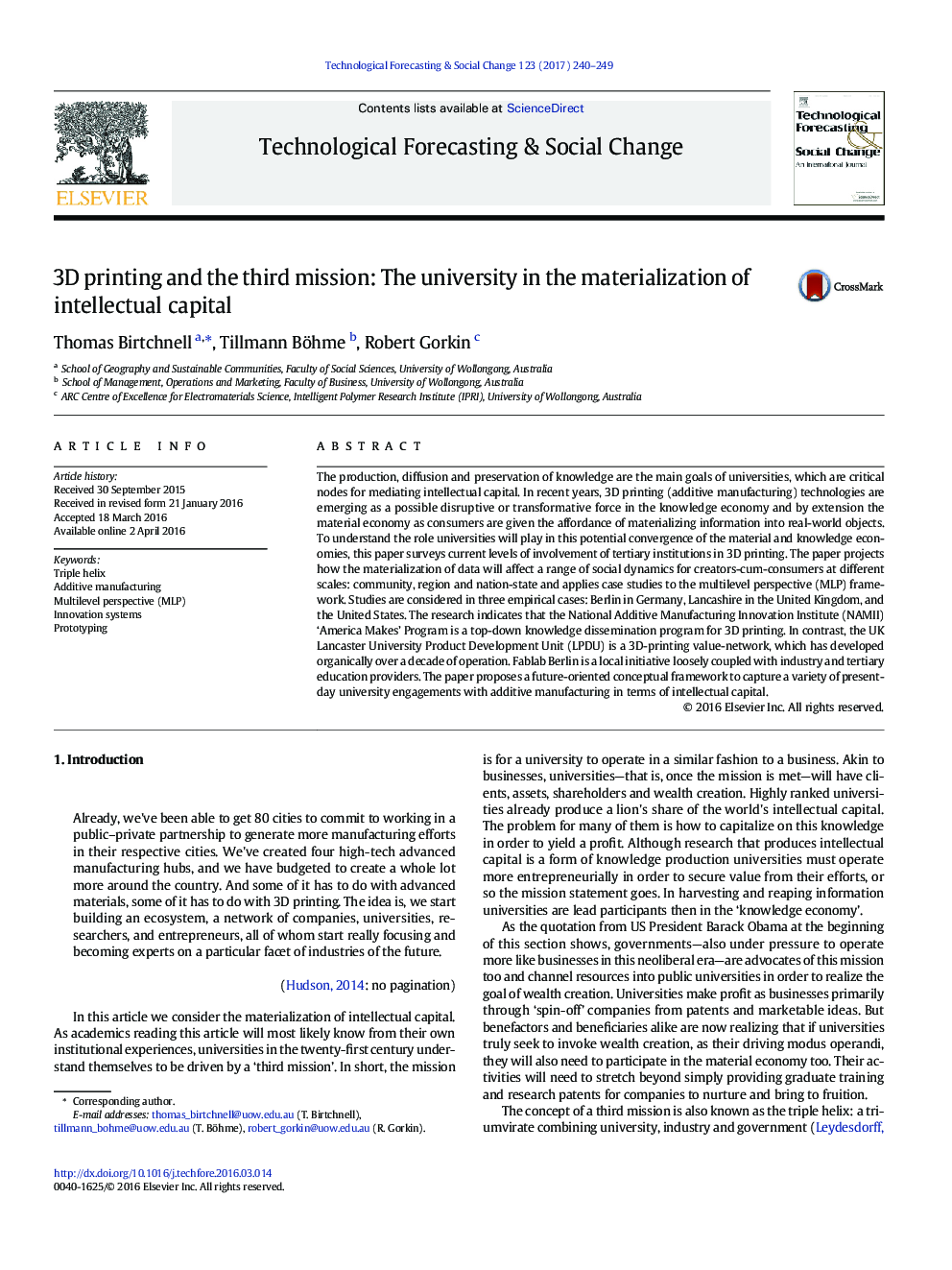| کد مقاله | کد نشریه | سال انتشار | مقاله انگلیسی | نسخه تمام متن |
|---|---|---|---|---|
| 5036818 | 1472378 | 2017 | 10 صفحه PDF | دانلود رایگان |
- An empirically-informed link between 3D printing and the third mission of universities
- Operationalization of the multilevel perspective (MLP) for multi-scalar case studies
- Scales of 3D printing invoke differing intensities of knowledge transfer in the triple helix.
- A university-centred optic on a socio-technical transition involving 3D printing
The production, diffusion and preservation of knowledge are the main goals of universities, which are critical nodes for mediating intellectual capital. In recent years, 3D printing (additive manufacturing) technologies are emerging as a possible disruptive or transformative force in the knowledge economy and by extension the material economy as consumers are given the affordance of materializing information into real-world objects. To understand the role universities will play in this potential convergence of the material and knowledge economies, this paper surveys current levels of involvement of tertiary institutions in 3D printing. The paper projects how the materialization of data will affect a range of social dynamics for creators-cum-consumers at different scales: community, region and nation-state and applies case studies to the multilevel perspective (MLP) framework. Studies are considered in three empirical cases: Berlin in Germany, Lancashire in the United Kingdom, and the United States. The research indicates that the National Additive Manufacturing Innovation Institute (NAMII) 'America Makes' Program is a top-down knowledge dissemination program for 3D printing. In contrast, the UK Lancaster University Product Development Unit (LPDU) is a 3D-printing value-network, which has developed organically over a decade of operation. Fablab Berlin is a local initiative loosely coupled with industry and tertiary education providers. The paper proposes a future-oriented conceptual framework to capture a variety of present-day university engagements with additive manufacturing in terms of intellectual capital.
Journal: Technological Forecasting and Social Change - Volume 123, October 2017, Pages 240-249
